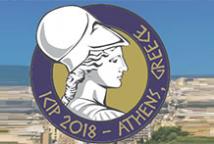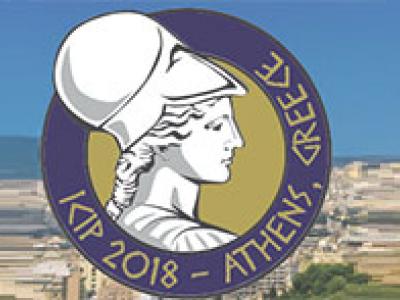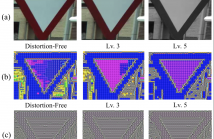
The International Conference on Image Processing (ICIP), sponsored by the IEEE Signal Processing Society, is the premier forum for the presentation of technological advances and research results in the fields of theoretical, experimental, and applied image and video processing. ICIP has been held annually since 1994, brings together leading engineers and scientists in image and video processing from around the world. Visit website.

- Read more about Co-occurrence Matrix Analysis Based Semi-Supervised Training for Object Detection
- Log in to post comments
One of the most important factors in training object recognition networks using convolutional neural networks (CNN) is the provision of annotated data accompanying human judgment. Particularly, in object detection or semantic segmentation, the annotation process requires considerable human effort. In this paper, we propose a semi-supervised learning (SSL)-based training methodology for object detection, which makes use of automatic labeling of un-annotated data by applying a network previously trained from an annotated dataset.
- Categories:
 15 Views
15 Views
- Read more about MINTIN: MAXOUT-BASED AND INPUT-NORMALIZED TRANSFORMATION INVARIANT NEURAL NETWORK
- Log in to post comments
- Categories:
 11 Views
11 Views
- Read more about DENSE BYNET: RESIDUAL DENSE NETWORK FOR IMAGE SUPER RESOLUTION
- Log in to post comments
This paper proposes a method, Dense ByNet, for single image super-resolution based on a convolutional neural network (CNN). The main innovation is a new architecture that combines several CNN design choices. Using a residual network as a basis, it introduces dense connections inside residual blocks, significantly reducing the number of parameters. Second, we apply dilation convolutions to increase the spatial context. Lastly, we propose modifications to the activation and cost functions.
- Categories:
 104 Views
104 Views
- Read more about SuperCut: Superpixel Based Foreground Extraction With Loose Bounding Boxes in One Cutting
- Log in to post comments
Interactive image segmentation that uses a bounding box containing the foreground has gained great popularity because of its convenience. However, its performance is often degraded when the bounding box is not tight enough or covers large background regions. To solve this problem, this paper proposes a novel segmentation algorithm called ``SuperCut". This algorithm provides robust segmentation in one cut even with loose bounding boxes.
Poster.pdf
- Categories:
 25 Views
25 Views
- Read more about Billboard Saliency Detection in Street Videos for Adults and Elderly
- Log in to post comments
- Categories:
 10 Views
10 Views
- Categories:
 25 Views
25 Views
In this paper, we generate and control semantically interpretable filters that are directly learned from natural images in an unsupervised fashion. Each semantic filter learns a visually interpretable local structure in conjunction with other filters. The significance of learning these interpretable filter sets is demonstrated on two contrasting applications. The first application is image recognition under progressive decolorization, in which recognition algorithms should be color-insensitive to achieve a robust performance.
- Categories:
 13 Views
13 Views
- Read more about A PRACTICAL CONVOLUTIONAL NEURAL NETWORK AS LOOP FILTER FOR INTRA FRAME
- Log in to post comments
Loop filters are used in video coding to remove artifacts or improve performance. Recent advances in deploying convolutional neural network (CNN) to replace traditional loop filters show large gains but with problems for practical application.First, different model is used for frames encoded with different quantization parameter (QP), respectively. It is expensive for hardware. Second, float points operation in CNN leads to inconsistency between encoding and decoding across different platforms. Third, redundancy within CNN model consumes precious computational resources.
- Categories:
 5 Views
5 Views
- Read more about SHPD: SURVEILLANCE HUMAN POSE DATASET AND PERFORMANCE EVALUATION FOR COARSE-GRAINED POSE ESTIMATION
- Log in to post comments
Pose estimation is highly valued in surveillance systems in the era of big data. However, current human pose datasets are limited in their coverage of the pose estimation challenges in outdoor surveillance scenarios. In this paper, we introduce a novel Surveillance Human Pose Dataset (SHPD).
poster-cqh.pdf
- Categories:
 69 Views
69 Views
Canonical correlation analysis (CCA) is a data-driven method that has been successfully used in functional magnetic resonance imaging (fMRI) data analysis. Standard CCA extracts meaningful information from a data set by seeking pairs of linear combinations from two sets of variables with maximum pairwise correlation. So far, however, this method has been used without incorporating prior information available for fMRI data. In this paper, we address this issue by proposing a new CCA method named PCCA (for projection CCA).
- Categories:
 23 Views
23 Views